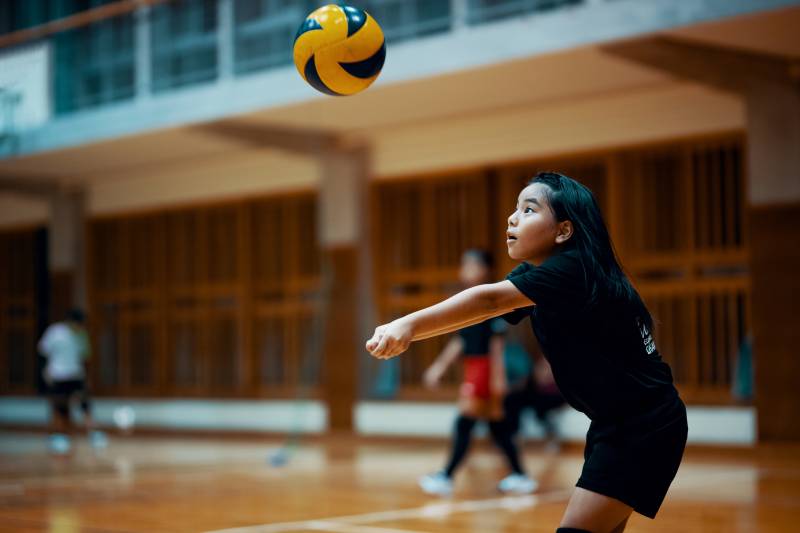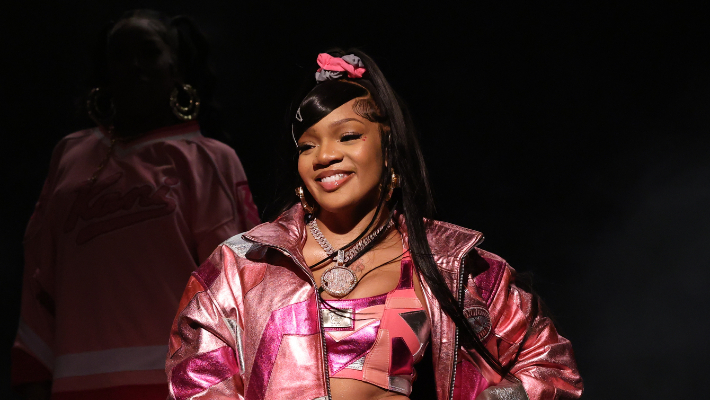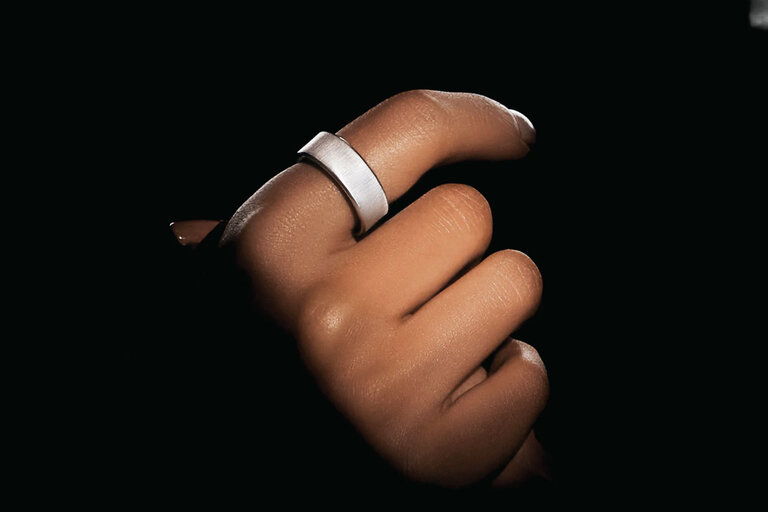Boys Face Unique Challenges. Here’s How to Help Them Thrive
In a conversation with MindShift, Ruth Whippman, author of BoyMom: Reimagining Boyhood in the Age of Impossible Masculinity, shares three ways to better support young boys in a changing world.

View the full episode transcript.
On her son’s first day of kindergarten, Ruth Whippman, author of BoyMom: Reimagining Boyhood in the Age of Impossible Masculinity, stood by as a parent volunteer welcomed each child at the gate. Two nervous little girls walked in first, and the volunteer crouched down, his voice warm and tender: “Hi, sweetheart.” Then came Whippman’s son. The volunteer straightened up, his tone dropping an octave as he gave a hearty high five and said, “Hey, buddy!” In that moment, Whippman saw how boys and girls are often treated differently, even when they’re feeling the same emotions.
As she explores in her book, these subtle messages teach boys to “man up,” cutting them off from vulnerability, deep connections and intimacy. “By the time kids are five years old, they’ve already accumulated many thousands of buddy/sweetheart moments,” said Whippman. However, small changes in how parents, teachers and community members show up for boys can help rewrite that narrative and better support their emotional growth.
Point out the problem
The culture has grown a lot in the past few years at calling out how sexism affects young girls, but when it comes to boys it’s a different story, said Whippman “We just don’t have the equivalent tools or vocabulary or kind of social permission to call it out when it comes to boys,” she explained.
One way this shows up is in how boys and men are portrayed in books and movies. Whippman highlighted the popular movie Inside Out as an example. The young girl character’s brain is shown as a rich mix of emotions, but when they show the dad’s brain the emotions are watching sports or confused. “Often girls get given content that’s all about friendships and relationships and social-emotional dilemmas. Whereas boys get so much content about battles and fighting,” said Whippman. This normalizes the idea that boys do not have to be engaged in emotions or that they are not expected to have rich emotional lives. This is not only a disservice to boys’ relationships with themselves, but it can negatively affect the way they “track and manage other people’s feelings and other people’s emotions,” Whippman said.
Media with boy characters that experience and express emotions can be hard to find, but they do exist, according to Whippman. She recommended Gordon Korman’s The Fort, which is all about male friendship, and R.J. Palacio’s Wonder, a favorite of her sons. “It’s written with real complex, genuine interiority, which is usually reserved for female characters,” she said. For a family movie, she suggested The Speed Cubers, a documentary about Rubik’s cube champions that highlights male friendships and vulnerability.
Prioritize compassion over discipline
In the wake of the #MeToo movement and the spotlight on men behaving badly, Whippman felt a heightened sense of concern as she raised her boys. “It was almost like boys were just these predators in waiting,” she said. “The best you could do as a mom was to kind of minimize the harm.” Her first reaction was to be stricter and rely on discipline. However, after reading research by Alan Schore that showed boys are more emotionally vulnerable because the parts of their brains responsible for emotional regulation mature more slowly, she realized her approach might not be working as intended. “In our home, we’d been using sticker charts, rewards, and consequences. And I just thought, ‘Scrap all of this,’” she said. “They needed my support, not my chastisement.”
Whippman shifted her focus to connecting with her kids. She started spending more time with them, being more flexible when they misbehaved, and approaching their experiences with curiosity. The results, she said, were transformative and her relationship with her boys changed for the better. “We learn to be empathetic and caring by being empathized with and cared for ourselves. You can’t just shame a person into becoming a moral and caring person,” said Whippman.
That doesn’t mean parents shouldn’t set limits, she cautioned. “It’s just a different orientation and approach. See your child as a human being who needs love, nurture, and support in that moment. Offer them grace, and believe they’re not acting out of ill will.”
Use positive touch
From the earliest days of life, parents tend to handle boys and girls differently, said Whippman. For instance, while roughhousing is more common with young boys, studies show mothers provide twice as much caretaking touch—like cuddling or soothing gestures—to baby girls. Over time, these differences can add up.
“Boys in our culture are one of the most touch-starved groups,” Whippman explained. Research supports this. This lack of positive physical connection can have lasting effects, but small, intentional actions can make a difference. Simple gestures like a hand on the back when they’re upset or a pat on the shoulder to acknowledge a job well done can help offset this pattern of low touch.
“Of course, that doesn’t mean that we don’t need to nurture girls or we don’t need to nurture trans kids or kids of other genders,” said Whippman. “It’s just that boys have very specific gender socialization which affects them in very specific ways. And I think we need to be aware of that.”
Episode Transcript
Nimah Gobir: Welcome to MindShift — where we explore the future of learning and how we raise our kids. I’m Nimah Gobir.
Nimah Gobir: How many of you have seen those “Boy Mom” bumper stickers? Maybe on a car at school drop-off, or maybe the sticker is on your car. [car horn] As a culture, we’ve regarded raising boys as a point of pride for parents who feel like they’ve survived the storm of parenting rambunctious kids.
Nimah Gobir: But what about the boys themselves? While parents are often celebrated for embracing the chaos, boys are often sent the message that their unruly behavior is simply “boys being boys.” Beyond the stickers and slogans, what does it really mean to raise boys in today’s world?
Nimah Gobir: Today, we’re joined by Ruth Whippman, author of BoyMom: Reimagining Boyhood in the Age of Impossible Masculinity. Right after this…we’ll talk to Ruth about what’s shaping boys’ lives today—and how we, as parents, teachers, and communities, can do better to support them.
Nimah Gobir: Welcome to the podcast Ruth. Let’s start with a story you shared in your book about what you call the buddy/sweetheart phenomenon.
Ruth Whippman: On my son’s first day of kindergarten, which was last year in a just regular public school, he’s pretty anxious. You know, he’s stressed about all the normal things about going to school for the first time.
Ruth Whippman: And right in front of my son were these two little girls who were like equally anxious to be starting kindergarten. They also looked kind of scared and like they were going to miss their mothers and all the rest of it.
Ruth Whippman: And as they walked through the gate, there’s a parent volunteer who is a dad, this big guy, he sort of said very tenderly down at that level, he was like, Hi, sweetheart. And then the second girl, same thing. Hi, sweetheart. And then my son walks through the gate and this guy, like, puffs up to his giant, like, six feet something size, and his voice drops like, an entire octave. And he says, Hey, buddy. And gives my son a high five.
Nimah Gobir: To some people this difference might seem very subtle. Why did it stick with you?
Ruth Whippman: Had I not spent like several years researching boys and gender and masculinity and all the rest of it wouldn’t have even registered.
Ruth Whippman: It’s just these tiny moments that really accumulate.
Ruth Whippman: It’s really subtly sending a kind of like man up type message to the boy. I kind of like, you know, your emotions aren’t really appropriate in this moment. You’re not really you shouldn’t really be showing vulnerability or weakness. It’s time to kind of toughen up and be a man.
Nimah Gobir: I think this story sets up two things really well. One is that these messages happen unintentionally and two that they start really early.
Ruth Whippman: Yeah. Right from the very beginning, the earliest days, parents handle baby boys and girls differently. They do more kind of roughhousing and jiggling with baby boys and throw them up in the air and say like, “Hey there little man.”
Ruth Whippman: Studies show that they do around twice as much what they call caretaking touch for baby girls. We talk to girls more about their emotions. We’re more comfortable with them expressing emotions. We used subtly different vocabularies when we’re talking to boys and girls. So with boys, we tend to use more words connected to aggression and dominance and winning and power. And with girls, we use more words associated with emotions and feelings.
Ruth Whippman: And so just little by little, these moments accumulate. And each one in and of itself is so harmless. But then, you know, over time, it adds up to a really quite different relationship with care and empathy and social emotional learning and also, you know, with power and agency and respect.
Nimah Gobir: In your book you mentioned a researcher named Alan Schore — what does his research tell us about what boys actually need?
Ruth Whippman: What Alan sure shows in his research, he looks at the sort of neuroscience of infant brains. He shows that, if anything, boys are actually born more emotionally vulnerable and sensitive than girls. A male brain is born about a month to six weeks behind a baby girl’s brain in terms of right brain development, which is the part of the brain that deals with emotions, emotional self-regulation. So like the ability to calm yourself down when you’re upset, forming attachments, etc.. So because male brains are slightly more immature, it means that they’re more vulnerable to disruption. They need more intensive care from caregivers than baby girls who tend to be a little more resilient and independent. Boys cry more. They find it harder to calm down when they’re stressed. You know, of course, these are all averages, group averages. We’re not talking about any individual baby, but as a group, infant boys are more vulnerable than infant girls. But because of our sort of ideas about masculinity and what boys need and who they are, you know, although they actually need more care and more support and more engagement with emotions and that type of learning, we end up giving them slightly less. You know, we toughen them up, we tell them to be tough, we handle them differently. We give them slightly, slightly less nurturing care. And that combination, that kind of need more, get less really accumulates into something that can be quite harmful for boys.
Nimah Gobir: It feels like we’re at a bit of a crisis point with boys today. There are so many conflicting messages about what it means to “be a man” and none of them seem to leave room for emotional expression. Ruth, can you talk about how some of these narratives have evolved?
Ruth Whippman: Now we’ve got maybe a new narrative coming from the left, which for boys is more like, you’re so privileged, you have everything, your life is great. It’s time for you to take up less space, to be quiet, to shut up, to let everybody else have a voice and voice their problems, which is great in one sense. You know, we do want to give everybody else a voice, but it can easily just become yet another way of shutting down boys and men from expressing their feelings. And I think it’s causing a lot of resentment, a lot of misplaced anger.
Ruth Whippman: By doing that with boys and by sort of making them toughen up and communicating to them, they should man up and not show weakness and not be vulnerable, we are really cutting them off from that kind of deep connection and intimacy and deep relationships with other people. Because in order to form a deep bond with another person, you really need to show them your vulnerable self and you need to be willing and able to be there for their vulnerable self and to show up for their emotions and feelings. And we’re seeing the downstream effects of this in a real loneliness crisis amongst adult men and older adolescent boys at this moment.
Nimah Gobir: I want to jump in with some stats from your book. Boys account for 90 percent of school discipline violations and are suspended 3 times as often as girls. Boys are more likely than girls to engage in anti-social behavior. Boys commit suicide at nearly 4 times the rate as girls. Those are pretty dire. And even with those stats, having a book come out that says boys need more attention can make folks a bit agitated.. From what I understand you’re not saying boys need more attention …so we need to throw our girls out the window. Can you talk about how this isn’t a zero sum situation?
Ruth Whippman: It’s so True. I think the zero sum thinking about this is just so sad. You know, we’re talking about children here, you know, and absolutely, when I say we need to nurture boys, it, of course, doesn’t mean that we don’t need to nurture girls or we don’t need to nurture trans kids or kids of other genders. It’s just that boys have very specific gendered socialization which affects them in very specific ways. We learn to be empathetic and caring by being empathized with and cared for ourselves. You know, that’s how we then, you know, we know you can’t just shame a person into becoming a moral and caring person. They have to internalize that from being cared for.
Nimah Gobir: Let’s talk about solutions. You emphasize naming the problem and teaching boys to see these dynamics, why do you feel that’s important?
Ruth Whippman: So I think part of naming the problem is just to see this stuff. You know. once you start seeing it, you can’t unsee it. And this also shows up in the kinds of books and stories and tv shows that we show to boys as well. It’s not just in the way that we are with them as parents. Often girls get given content that’s about friendships and relations and social- emotional dilemmas whereas boys get so much content that is about battles and fighting. And we need to name it to our boys and we need to see it as a real loss. You know, we need to tell them and say, you know, well, why do we think that boys are emotionally stupid in this movie? Why is it portraying this? Why is that okay? Why is it allowed to pass? You know, and asking these questions and giving them the skills and the tools to mend that problem as well.
Nimah Gobir: Parenting plays a huge role in breaking these cycles too. In your book you shared how shifting your own approach transformed your relationship with your sons. What did you learn?
Ruth Whippman: It was almost like boys were just these kind of like predators and waiting, you know, the best you could do as a as a mom was to kind of minimize the harm. And I think my response was to try to be harsher and stricter with them and enforce more consequences and all the rest of it. In our home, we’ve been using all these sticker charts and rewards and consequences and this and that. And I was just like, scrap all of this.
Ruth Whippman: When I realized that that was, you know, vulnerability and they needed my support rather than my sort of chastisement or my behavioral interventions or whatever, and just kind of tried to connect with them my whole relationship with them changed. And once we started seeing them in that way, in a more sort of fully human way, rather than these like people to be controlled, then their behavior absolutely shifted and my relationship with them shifted as well.
Ruth Whippman: People want a script that like this is how, you know, these are the five things I should say to my son to build a good relationship. And it doesn’t work like that. You’ve got to show up authentically and say and know and love the child that you have.
Nimah Gobir: You’ve talked about pointing out the problem to your kids and leading with compassion instead of discipline. Another solution you offer is what you call positive touch. What do you mean by that?
Ruth Whippman: Boys in our culture, some one of the most like touch starved groups. There was one study that said that teenage boys, around 20% of teenage boys report that they are never hugged or cuddled at all. And that’s about twice as many as the number of teenage girls who say the same thing. So positive touch reinforcement, communicating to your son that you are on his side. It’s a strange moment where, like, that feels like a kind of radical thing to do for liberal parents in a way. But actually, you know that boys need more nurture in a way, you know, which is not to say that we should be neglecting girls. Of course not. But just to correct for the imbalance that already exists.
Nimah Gobir: We love a recommendation here at MindShift. Do you have any recommendations for media with characters who are modeling what it looks like for boys to feel emotions?
Ruth Whippman: Gordon Kormon is an author that writes books that often have both characters that are involved in friendship situations. And my son really enjoyed the book. Wonder. And the book is called Wonder, which is a story about a boy who has a facial disfigurement. But it’s just written with real complex, genuine interiority, which is usually reserved for female characters. So there are a few. It’s hard to find books like that. The author’s name is R.J. Palacio. A documentary that I watched with my son that may or may not still be on Netflix is called Speed Cubers is my son. My middle son got really into Rubik’s Cube for a while, and it’s this world which is very extremely male dominated and it can often be quite dry. But this documentary, Speed Cubers is gorgeous, and it becomes the story of the world champion and the cubing world champion and his autistic rival, who then becomes the world champion. But it really becomes a story about male friendship and kindness and emotionality, which was really special. And my son loved that as well.
Nimah Gobir: A big thank you to Ruth Whippman. Her book is Boy Mom: Reimagining Boyhood in an Impossible Age of Masculinity. If you’d like to learn more, check out her book or visit our website for additional resources. We’ll have more episodes coming down the pipeline — hit follow on your favorite podcast app so you don’t miss a thing.




































































